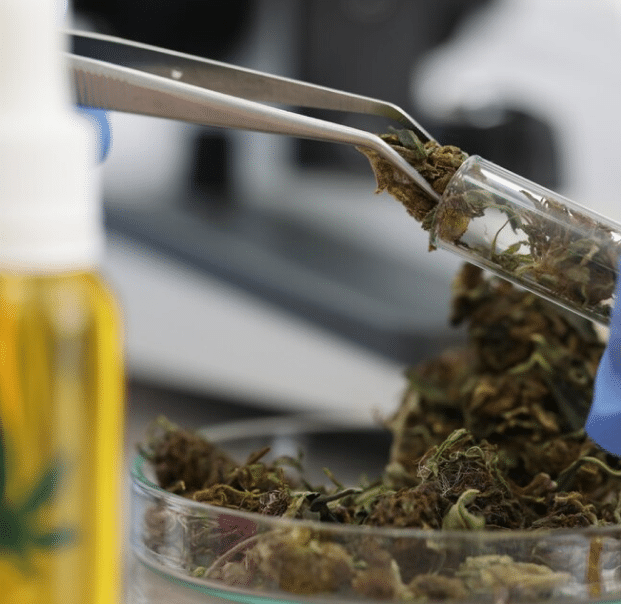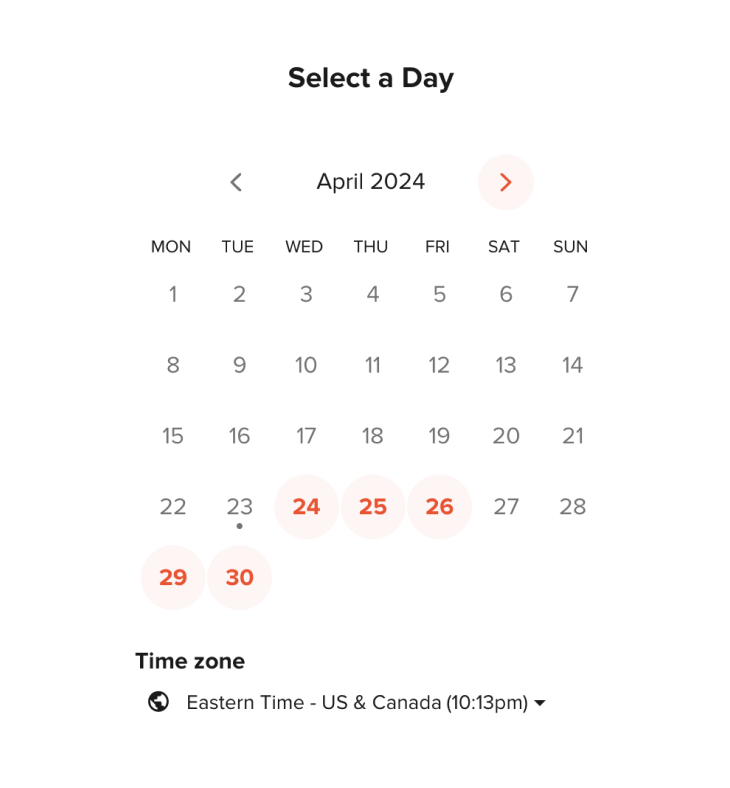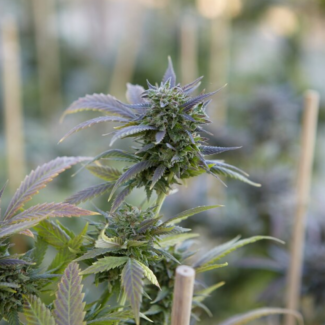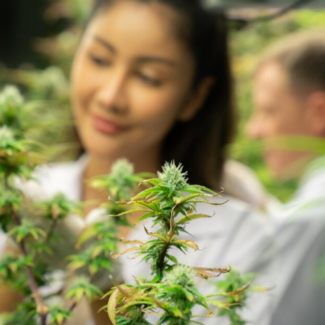How to Open a Dispensary in Washington D.C.
Opening a dispensary in Washington D.C. involves navigating a complex regulatory landscape, understanding market dynamics, and adhering to specific licensing requirements. With a burgeoning cannabis industry characterized by both medical and potential recreational sales, this guide provides insights into the application processes, necessary qualifications, and current trends impacting cannabis businesses in the District.

Washington, D.C., is no stranger to the pot industry. The Capital has over 300 cannabis-affiliated ventures and more than 26,000 registered medical cannabis patients as of September 2024. From the outside, it looks like a bustling industry, but it has challenges.
There’s plenty to consider if you want to open a successful, law-abiding medical dispensary in D.C.The spotlight was once on the Capital’s gray markets created through loopholes in the previous regulations, which has been solved through recent efforts.
Overview and History of Cannabis in the District of Columbia
Cannabis was legalized for medical use in 1998, but consumers couldn’t access any until 2013. One year later, its recreational use was legalized in an overwhelming response to I-71 in 2014.
Since then, cannabis producers and consumers have been juggling with the unique market the laws have created. While adult-use cannabis is allowed, marijuana products can only be purchased from a medical dispensary. So, it remains a no-sale product for all others.
Initially, only three medical dispensaries and five cultivation centers licensed between 2013 and 2014 were active. After years of pressure for more opportunities, the administration opened several new licenses, totaling eight dispensaries, ten cultivation centers, and two testing labs.
In March 2023, the city council passed the Medical Cannabis Amendment Act of 2021 which removed the cap on medical marijuana “retailer” licenses altogether. It also allowed delivery and curbside pickup services by dispensaries and eliminated the limit on the number of plants a cultivation center can grow.
Over time, the gray market that emerged in the Capital due to the inconsistencies in the legislature is expected to diminish. Now, these semi-illegal operations can come into the safe zone by registering their businesses.
Current State of the Cannabis Market in the District of Columbia
Washington D.C.’s cannabis market has been evolving significantly since the Medical Cannabis Amendment Act of 2021 came into effect.
In 2022, the city extended an opportunity for hundreds of gray establishments—those operating on a gift-based model—to become legal. However, with unlicensed “I-71” shops multiplying to over 100 locations, D.C. lawmakers are taking stricter action. These unregulated shops have affected licensed medical retailers and raised concerns with parents due to their proximity to schools and daycare centers.
As of November 2024, the only way to acquire cannabis legally is by getting certified as a medical patient and buying the product from a licensed medical marijuana retailer (formerly dispensary). This means the market heavily relies on the medical cannabis program, limiting access to registered patients rather than the general adult population. Consequently, the industry’s growth hinges on increasing patient enrollment and promoting awareness about the benefits of medical cannabis.
While sales have shown slight increases, the market’s growth has been slow. In August 2024, medical cannabis sales reached $4.52 billion, a modest increase from July’s $4.49 million. For dispensaries, expanding the patient base will be essential to driving sustainable growth in the district’s tightly regulated market.
Despite its current limitations, the District of Columbia’s cannabis market is expected to reach $186 million in sales by 2025. If recreational sales become legal, estimates suggest first-year revenues could hit $50 million—a figure that may quadruple within four years, reflecting significant growth potential for the industry.
Social Equity Programs for Cannabis in the District of Columbia
The Medical Cannabis Amendment Act stipulates that, aside from Testing Laboratory licenses, 50% of new medical cannabis business licenses in Washington D.C. will be awarded to social equity applicants. To ease their burden, the district also introduced discounts on administrative expenses.
New social equity applicants will receive a 75% waiver for nonrefundable license fees related to their medical cannabis business, such as application or renewal fees, for the first three years of operation.
The main criteria to qualify for social equity is that the applicant (or one of the owners) must be a D.C. resident who owns at least 50% of the business (individually or collectively) and is:
- A returning citizen.
- In an immediate relation with someone incarcerated for a cannabis or drug-related crime.
- In the bracket of income lower than 150% of the median family income set forth by the U.S. Department of Housing and Urban Development.
For more information on the district’s social equity program, check out their Social Equity Applicant Resource Guide.
Types of Dispensary Licenses in the District of Columbia
As a business, you can only operate under the label of a medical dispensary within the D.C. limits. Although the Safe Cannabis Sales Act of 2021 previously proposed a framework for adult-use sales through normal dispensaries, it is yet to be implemented.
The medical marijuana dispensary license has been renamed to the retailer license. There are four subcategories within it wherein businesses can receive endorsement: Delivery, Education Tasting, Safe Use Treatment Facility, and Summer Garden. These endorsements can only be availed by existing licensed businesses.
License for Medical Marijuana Retailers
Licensed Retailers may operate, sell, and deliver medical cannabis and medical cannabis products daily. They are permitted to operate between 7:00 AM and 11:00 PM, however, hours may vary based on the approval of the Alcoholic Beverage and Cannabis Administration (ABCA).
An owner can only register for one medical marijuana dispensary license, and prescribing physicians can not become owners. The fee breakdown for a license is as follows:
- Standard applicant fee: $8,000 ($2,000 for Social Equity Applicants [SEA])
- Annual fee: $16,000 ($4,000 for SEA)
- Annual fee (each corporate partner): $200
- Annual fee (each employee): $75
- Annual fee (each Manager’s license): $150
Note: The cap on retailer licenses has been removed. However, applications are only accepted in scheduled periods.
Medical Cannabis Education Tasting Endorsement
This license allows owners to host cooking classes, demonstrations, and tastings of cannabis-infused and related products, for educational purposes. It must be conducted on private property and adhere to the 7:00 AM to 9:00 PM timeframe. This endorsement type has a standard annual fee of $130.
Medical Cannabis Safe Use Treatment Facility Endorsement
By becoming a Safe Use Treatment Facility, customers can test/use their purchased cannabis products within the limits of your business. However, they must remain within a designated area of the shop (on private property).
The following guidelines are enforced within this type of facility:
- Tobacco and alcohol products are strictly forbidden.
- Non-alcoholic beverages and non-cannabis-infused food items may be sold and served.
- Only medical cardholders and their caregivers can enter the facility.
- Patients may take unused medical cannabis products home.
- Recorded or background music may be played onsite.
- Games or contests that use or award cannabis products are not permitted.
- A smoke-free area for employees to monitor the safe-use treatment facility is required.
This type of endorsement has a standard annual fee of $2,000.
Medical Cannabis Summer Garden Endorsement
For businesses that want to give customers a more comfortable open-air experience, this license permits the sale and consumption of medical cannabis and its products in a private outdoor area.
To qualify for a Summer Garden endorsement, Retailers must also hold a safe-use treatment facility endorsement. A Summer Garden is subject to the same operating hours as a Retailer (7:00 AM and 11:00 PM). This type of endorsement has a standard annual fee of $300.
Medical Cannabis Delivery Endorsement
During COVID, there was much discussion over making medical cannabis deliveries possible. This license permits businesses to transport their products to eligible patients (or their caregivers) at residential and commercial building addresses.
However, they must be within the District limits and should not be a government or Federal property. Plus, delivery vehicles can only pass through unrestricted district areas.
Curbside pick-up also comes under this license and is subject to the same rules. All forms of delivery must be between 9:00 AM and 9:00 PM. This type of endorsement has a standard annual fee of $300.
Other License Types for Cannabis in the District of Columbia
License for Cannabis Cultivators
A cannabis cultivator can grow and later distribute or sell cannabis to licensed manufacturers, retailers, and internet retailers. Licensed clients must be within D.C. for resale. If a cultivator wishes to produce cannabis products, they must also apply for a manufacturer’s license.
To qualify for a cannabis cultivator license, applicants must meet the following criteria:
- At least 21 years of age
- Be current on all tax filings and now owe the District more than $10,000
- Should not be interested in a testing laboratory, courier, or internet retailer license
- Must either be a for-profit or non-profit corporation incorporated in the District
A cultivation center may not be located within any Office of Planning-zoned residential district or 300 feet of a preschool, primary, or secondary school, or recreation center.
The following fees apply for this license type:
- Standard applicant fee: $8,000 ($2,000 for SEA)
- Annual fees (per tier)
- Tier 1 – $11,000
- Tier 2 – $16,000
- Tier 3 – $21,000
- Tier 4 – $26,000
- Tier 5 – $31,000
- Tier 6 – $36,000
- Annual fee (each corporate partner): $200
- Annual fee (each employee): $75
- Annual fee (each Manager’s license): $150
License for Cannabis Testing Labs
A testing lab can test and provide results for medical cannabis and medical cannabis products produced by licensed cultivation centers and manufacturers. They are not permitted to sell any cannabis-related products.
Similar to cannabis cultivators, those looking to obtain a cannabis testing lab license must meet the following criteria:
- At least 21 years of age
- Be current on all tax filings and now owe the District more than $10,000
- Should not be interested in a testing laboratory, courier, or internet retailer license
- Must either be a for-profit or non-profit corporation incorporated in the District
A cannabis testing lab may not be located within any Office of Planning-zoned residential district or 300 feet of a preschool, primary, or secondary school, or recreation center.
The standard license application fee is free. However, there is an annual fee of $7,500 for standard business licenses and $1,875 for SEA (reduced for the first 3 years of operation).
License for Cannabis Manufacturers
Manufacturers are allowed to process, package, and label medical cannabis products which will be sold to customers through licensed retailers and internet retailers in D.C.
Similar to other business licenses in the District of Columbia, those looking to obtain a cannabis manufacturing license must meet the following criteria:
- At least 21 years of age
- Be current on all tax filings and now owe the District more than $10,000
- Should not be interested in a testing laboratory, courier, or internet retailer license
- Must either be a for-profit or non-profit corporation incorporated in the District
A manufacturer may not be located within any Office of Planning-zoned residential district or 300 feet of a preschool, primary, or secondary school, or recreation center.
There are currently two types of manufacturing licenses:
- Type 1 – Manufacturing only
- Type 2 – Manufacturing and extraction
For producing goods using potentially hazardous material, a Type 2 Manufacturers license and an operational permit from the Office of the Fire Marshal are necessary.
The application fee for a manufacturing license is $4,000 for standard applicants and $1,000 for SEA. There is also an annual license fee of either $4,000 (Type 1) or $8,000 (Type 2). These annual fees are reduced for SEA as well.
License for Cannabis Couriers
A courier license is separate from the delivery endorsement previously mentioned. This license allows the third-party delivery of medical cannabis and related products on behalf of retailers. However, it follows the same rule as other cannabis deliveries.
The application fee for a cannabis courier license is $4,000 for standard applicants and $1,000 for SEA. There is also an annual license fee of $8,000 (standard) and $2,000 (SEA).
License for Cannabis Internet Retailers
Internet retailers receive a separate license from standard retailers. They can operate an online business with no physical presence and deliver to patients without needing a delivery endorsement. However, they are not permitted curbside or drive-through pick-up.
Similar to other license types, applicants for this license must meet the following qualifications:
- At least 21 years of age
- Be current on all tax filings and now owe the District more than $10,000
- Should not be interested in a testing laboratory, courier, or internet retailer license
- Must either be a for-profit or non-profit corporation incorporated in the District
Here are several things to note when looking to become an internet retailer:
- Internet retailers can operate daily except between the hours of 9:00 PM and 9:00 AM.
- Deliveries are permitted to be conducted by a licensed third-party courier or the internet retailer staff.
- Delivery staff are responsible for verifying the identity and age of the patient or their caregiver prior to handing over the delivery order.
- Deliveries are not permitted outside of the District or to District or federal government property.
- Internet retailers may not be located within any Office of Planning-zoned residential district or 300 feet of a preschool, primary or secondary school, or recreation center.
The application fee for an internet retailer license is $8,000 for standard applicants and $2,000 for SEA. There is also an annual license fee of $16,000 (standard) and $4,000 (SEA).
Your Cannabis Business Deserves the Best
Application Process for a Medical Retailer License
The application process is straightforward:
- Applicants and their businesses must meet the eligibility criteria given.
- They must have the Small and Local Business Development (DSLBD)-issued certification documents.
- The application form is filled and submitted once the application period is open. You can check the open application schedule here.
- Submit the application fees, $8,000 for standard retailers and $2,000 for SEA retailers through accepted payment methods.
- Pass final criminal background checks for social equity applicants and accepted regular applicants.
Required Documentation for a License
The document list depends on whether you’re a regular or social equity applicant. You can find all the necessary documents and the relevant government offices you can receive them from in the license checklist. Below is a brief overview of the requirements:
- Medical Cannabis License Application
- Trade Name Registration
- Certificate of Good Standing for the Corporation
- Certified surveyor’s report or detailed Geographic Information System (GIS) map of the proposed location
- Valid zoning determination letter or Zoning certificate
- Clean Hands Certification for the business and all owners
- Medical Cannabis Acknowledgement and Attestation Form
- Medical Cannabis Social Equity Declaration Form
- Social Equity Application Attestation Statement (if applying as a Social Equity Applicant)
- Medical Cannabis Certified Business Enterprise Declaration Form
- Annual Personal Net Income Attestation Form
- Certification as a Medical Cannabis CBE from the DSLBD
- Non-refundable application fee
Timelines for Obtaining a License
The ABCA provides a detailed schedule for tentative dates related to the application process. Their processing time is 45 days after the successful submission of the application, in which they make a decision and wait for final approval. It would be best to start preparing for the process before the actual application period begins.
Financing and Business Plan for a Dispensary
The crucial step in getting a cannabis dispensary license is to develop a business plan, which will be used to secure the necessary financial resources. A solid business plan is one of the most essential tools in an entrepreneur’s toolkit. In general, your cannabis business plan should include the following:
- The physical location of your dispensary
- Funding plan, or the source of your startup and ongoing capital
- Sourcing plan for procuring cannabis products
- Revenue projections
- Estimate or actual number of employees
- Diversity and equity plans
- Marketing plan
- Safety and security plan
- Technology plan
- The insurance company you will be opting for
- Other relevant information you want to document
A well-crafted business plan is essential for the success of your business. It contains all the necessary information to present to potential investors and lenders, outlining the steps you will take to start and expand your business. Agencies like the Small Business Administration (SBA) can help you find funding sources from private companies or banks if you need help getting it.
Overall, while developing your business plan, ensure that you follow the District of Columbia’s dispensary laws and do not include anything that goes against the rules and regulations.
Types of Financing Available
There are many financing options available to you. The best approach is to identify the funding sources that are most appropriate for your business and its objectives. The following is an overview of the different financing options and their uses:
- Debt financing is a financial strategy in which borrowed funds are utilized as a business investment and are repaid with interest over a set period.
- Equity financing, on the other hand, involves selling shares of stock in a company, or a specific percentage of it, to investors in exchange for capital. This approach grants investors ownership stakes in the business, entitling them to share profits and losses.
- Venture capital is a type of equity financing wherein investors fund start-ups expecting to earn substantial returns on their investment down the line. Businesses with high-growth potential typically choose this option but may still need to prove financial success.
- Commercial loans allow you to borrow money from commercial banks. They can be used for almost anything related to opening a dispensary: equipment purchases, inventory purchases, real estate leasing, etc.
Personal loans are also an option if you need funds quickly but don’t want to take out a commercial loan because of high interest rates or lousy credit history requirements.
Risk Management Plan
Risk management for a cannabis dispensary is heavily dependent on its security measures.
Security is not only a concern for cannabis businesses but the ABCA as well. When awarding a license, they pay close attention to how applicants secure their businesses and workers.
Here are some key elements that should be included in a risk management plan for opening a dispensary in the District of Columbia:
- Compliance Risks: Failing to comply with state and local regulations regarding the dispensary operation.
- Security Risks: Criminal activity such as robbery, theft, and other security threats.
- Operational Risks: Equipment failure, supply chain disruptions, and employee turnover can impact the dispensary’s operation.
- Health and Safety Risks: Health and safety hazards associated with cannabis products if not properly managed.
- Financial Risks: Vulnerability of the cash-based system to theft and fraud, as well as other financial risks.
- Reputation Risks: Risk of negative publicity damaging the dispensary’s image and bottom line.
Overview of the Washington D.C. Market for a Dispensary
The ABCA has created a regulated environment for businesses to flourish in, but there’s a noticeable difference between how well-structured the markets are in other states.
As of 2023, most of the struggles new businesses faced in the past ten years are dealt with. The gray market is losing its hold as more of these businesses are awarded licenses. Additionally, users can now self-register for medical cards, which is gradually increasing demand.
The market has numerous cannabis products such as buds, edibles, concentrates, etc., but most businesses are also known for the non-cannabis-related goods/services they once provided.
Despite this progress, the market still falls short compared to other states that have embraced recreational cannabis sales. Without a framework for adult-use cannabis, the industry is unable to tap into its full potential. Introducing recreational sales could significantly boost the market, attracting a broader customer base and generating increased tax revenue.
Trends and Competition in the District of Columbia Cannabis Industry
The District of Columbia may have the most diverse business for cannabis dispensaries. Due to the gray market period, many business owners developed fresh, quirky ideas to “gift” their cannabis to buyers.
Here, the business would provide merchandise, food, tours, etc, and “gift” cannabis to customers. The amount of cannabis was equal to the value of the non-cannabis good/service the business would provide.
Now that many of these businesses have been awarded their medical marijuana licenses, they can openly advertise their unique ideas and gain customers from all around. Each company has its own story and provides a unique experience for its customers.
Cannabis Insurance Requirements for a Dispensary
Opening a dispensary involves inherent risks, such as theft, property damage, product liability, and employee injury. Insurance policies are necessary to protect your dispensary against these risks and ensure your business can recover financially from unexpected events, legal claims, or operational disruptions.
Types of Policies Recommended
- General Liability Insurance
- Product Liability Insurance
- Property Insurance
- Workers’ Compensation Insurance (as mandated by law)
- Cyber Liability Insurance
- Directors and Officers Liability Insurance
Commercial Auto Insurance (minimum of $10,000 for property damage and more)
Costs Associated with Insurance
Insurance costs can vary widely depending on the unique needs of your business. For basic coverage, you can expect to pay anywhere from a few hundred dollars to $10,000 annually. However, several key factors influence these costs, including:
- Minimum insurance requirements per state
- Size and scale of your business
- Types of policies required
- Coverage limits
- Number of cannabis licenses held
- Experience in the industry
- Past insurance claims made
Resources for Potential Entrepreneurs in the District of Columbia
- Department of Small and Local Business Development
- The National Cannabis Industry Association
- METRC
- Ganjapreneur
- AlphaRoot’s “Roots to Risk” Podcast
Additional Resources and Links for Opening a Dispensary in the District of Columbia
The legal environment around cannabis in D.C. is still uncertain. Keep a close check on official news through the following links:
FAQs
How Much Does It Cost to Open and Run a Retailer?
In Washington D.C., the application fee to obtain a license is $8,000, and the annual fee is a staggering $16,000. Coupled with other mandatory government fees, employee-related fees, and other expenses, opening a medical cannabis dispensary in D.C. can cost $200,000 and up. Some investments are initial so running costs may decrease over time.
What Are the Location Requirements for a Retailer?
A retailer’s location has to be more than 300 feet away from any preschool, primary or secondary school, or recreation center. It should not be located inside an Office of Planning-zoned Residential District. The District’s government and federally operated areas are also off-limits for cannabis activities, including sales.
What Types of Insurance Policies Are Required for a Retailer?
Within the Capital, there are no minimum or standard cannabis insurance requirements. All businesses follow the same conditions, which include Commercial Auto Insurance and Workers’ Compensation Insurance. The government fixes the values for both mandatory policies according to your business’s category.
How Long Does It Take To Obtain a Retailer License?
Applications are accepted in specific windows, so submissions are due within that term’s time. Afterward, there is a 45-day wait for a public comment period and ABC Board approval.
After this, you’ll receive your license which is valid for three years and expires on the same day as all other licenses of the category.
What Are the Regulations for Advertising a Retailer?
For all active dispensaries, there are strict limitations for advertising within the District of Columbia.
- There can be no obvious advertisements of cannabis inside or outside an establishment (in the form of photos, illuminated signs, etc.)
- No underage (under 21) or minor can be shown in advertisements, directly or indirectly (through symbols/motifs such as toys for children, etc.)
- Ineligible users, who don’t hold a valid medical card, can’t be encouraged through advertisement.
- Any false or misleading statement regarding the business or its products is prohibited.
Can I Have More Than One Retailer Location?
Washington, D.C., doesn’t allow one individual to run multiple dispensaries or hold multiple licenses of the same nature. Hence, no owner can be an owner of another establishment as well. As all owners must be named during the license application, omitting identities may be considered foul play.
In a Nutshell
The political position in the District of Columbia has placed great stress on its cannabis industry.
While many states can pass legislatures and swiftly move towards expanding their markets, the federal government doesn’t loosen its grip on the Capital.
After a decade of legal medical marijuana sales, adult-use sales remain unlawful. New regulations work towards finding solutions within the existing systems to open access for all eligible users, but it’s much easier said than done. For the district’s cannabis market to expand, future regulatory changes will need to prioritize accessibility and consider broader legalization measures
In recent years, the District has been experiencing much-awaited development in providing better access to users. However, their journey is nowhere near finished.
Protecting your cannabis company can seem confusing; however, we’re a full-service insurance brokerage working with carriers worldwide to offer you the best coverage possible. We’re here to help! Please reach out to us today by emailing [email protected] or calling 646-854-1093 for a customized letter of commitment or to learn more about your cannabis insurance options.




